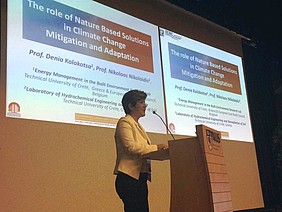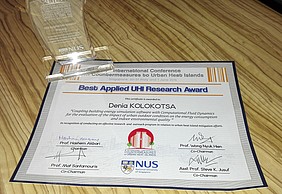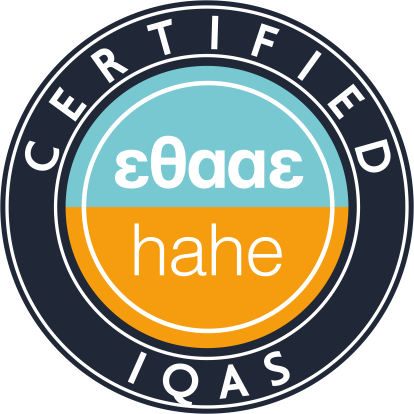The article entitled: ¨Coupling building energy simulation software with Computational Fluid Dynamics for the evaluation of the impact of urban outdoor conditions on the energy consumption and indoor environmental quality¨ submitted by the Energy Management in the Built Environment Research Lab (EMBER) with authors Kostas Gobakis and Denia Kolokotsa received the Best applied Urban Heat Island research award at the 4th International Conference on Countermeasure to Urban Heat Islands and climate change through mitigation and adaptation that was held in Singapore 31 May-1 June 2016.
The aim of the specific work is to describe an indoor-outdoor environmental conditions ‘coupling methodology. This methodology provides the capability of evaluating the impact of urban heat island and climate change on the indoor environmental quality and energy consumption of buildings. The overall approach is validated and tested using the data collected via the Internet based energy management system for University campuses that is installed in the Technical University of Crete, School of Environmental Engineering Campus buildings in the framework of the project CAMPI-IT.
The Fourth International Conference on Countermeasure to Urban Heat Islands (4th IC2UHI), was devoted to the science, engineering and public policies to help relieve the excess heat and air pollution of Summers in hot cities. It has long been recognized that the excessive heat and smog in many cities in the summer, the “Urban Heat Island”, is partly due to the choices of building materials, vegetation and urban design.
Selected Conference papers will be published in Energy and Buildings Journal, Special Issue: Countering urban Heat Island (UHI) and Climate Change Through Mitigation and Adaptation.

















